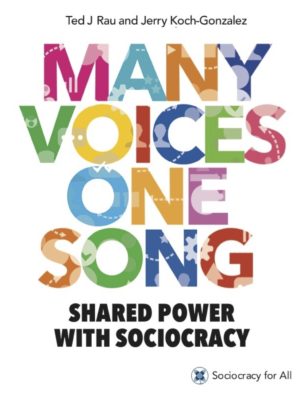Q: Discussions of consensus on cohousing discussion lists seem to be focused on or limited to facilitated, time-bound, decision-making events rather than building a culture of relationships in a community. Is this intentional?
Questions about consensus generally do focus on the technicalities and problems of using consensus to make decisions in meetings. And building community is one objective of using consensus because it ensures that the interests of everyone will be taken into consideration. However, cohousing communities, as opposed to other kinds of intentional communities, try to avoid ideologies or anything that might appear to be an ideology. Cohousing groups also vary widely on the degree of community that is expected of members and members vary widely on how they participate in the community. Diversity is welcomed even in this respect, though perhaps not by all.
Since consensus (or sense of the meeting) and peace as daily practices are most often associated with the teachings of the Quaker church, anything reminiscent of this becomes touchy.
Even sociocracy (dynamic governance), the only governance method designed to use consensus decision-making tends to discuss it as a tool, not a socially desirable objective. The official sociocratic organization, the Sociocratisch Centrum in Rotterdam, and its certification program focus specifically on how to implement the method in to design and govern better organizationsThe Delibrative Democracy Consortium (DDC)u is an alliance o..., not to produce a better society. Even equivalence is presented simply as the best way to create a harmonious organization. Their desire is to have sociocracy taught in as many kinds of organizations as possible and to develop a sociocratic society. This aim requires not adopting any cultural messages that might be interpreted as religious. This is one reason they prefer to refer to “consent” decision-making and to avoid the word consensus. Its connotations are too inclusive.
While sociocratic methods can be used simply as management tools, the underlying values of equivalence and harmony ultimately produce a worldview that is more inclusive and mindful. A leading consultant in Montreal, Gilles Charest, has extensive experience in Gestalt psychology. He teaches the principles with a decided focus on personality development and the way the principles address people’s need for attachment, security, and influence (being listened to). His leadership training has long focused more on psychology and sociology than on organizational engineering.
So the avoidance of discussing the contributions of consensus to community building are not necessarily because anyone wants to avoid building community. It is to be as inclusive as possible and this requires not imposing values or expectations of unanimity, and not interpreting harmony as agreement. It’s a difficult balance.
Categories: Decisions and Power, In Home and Family

